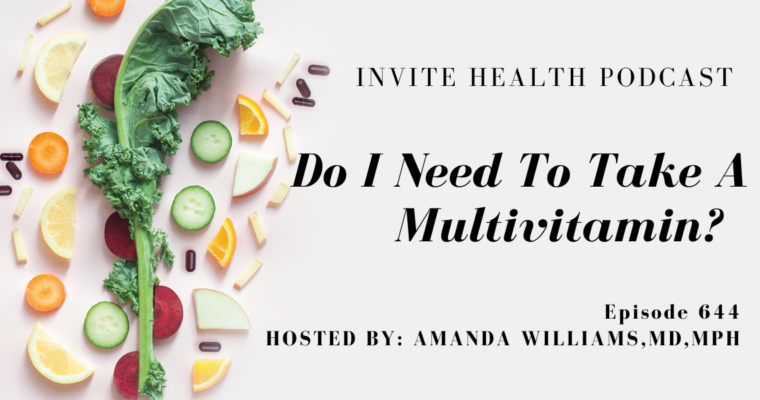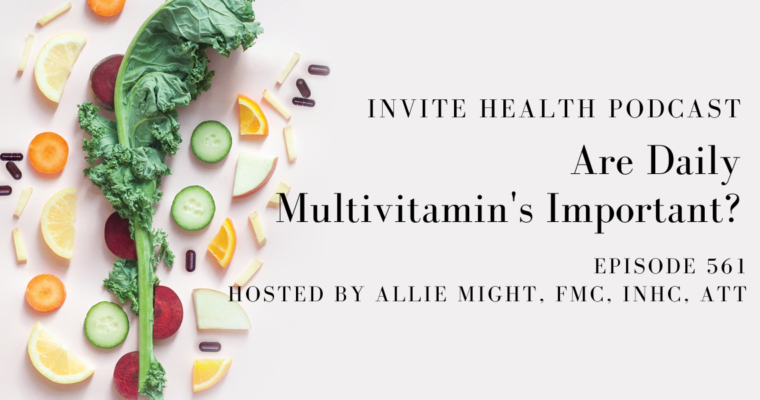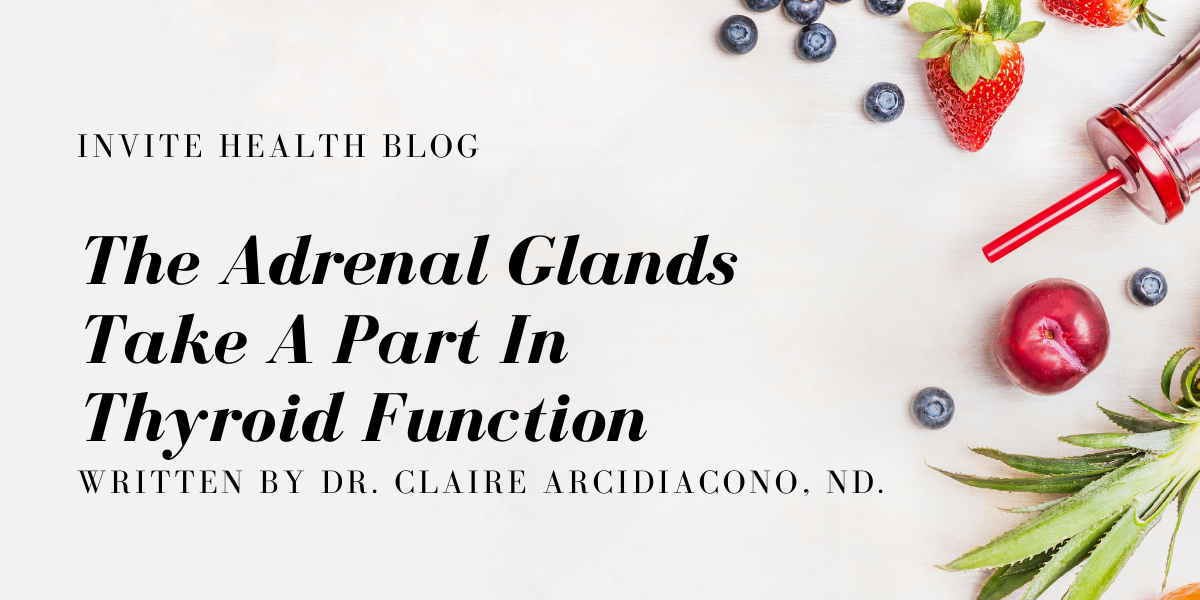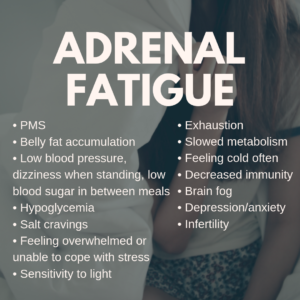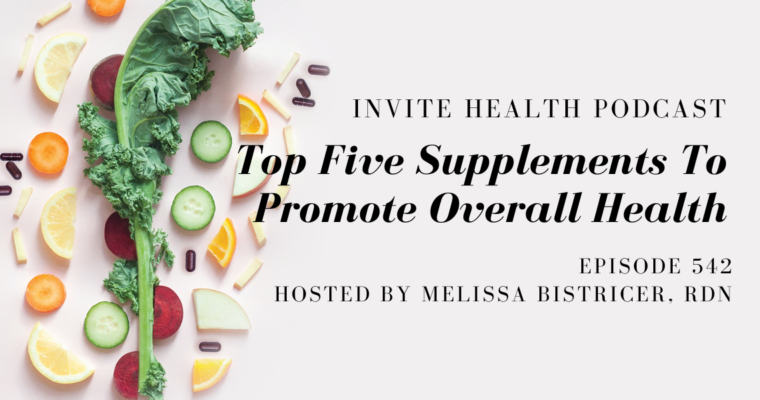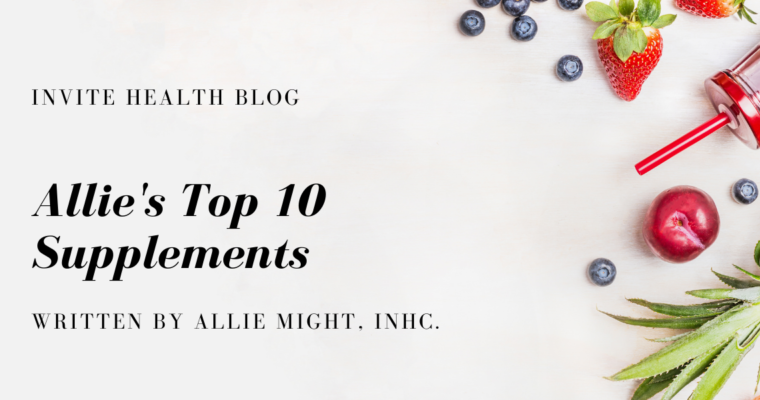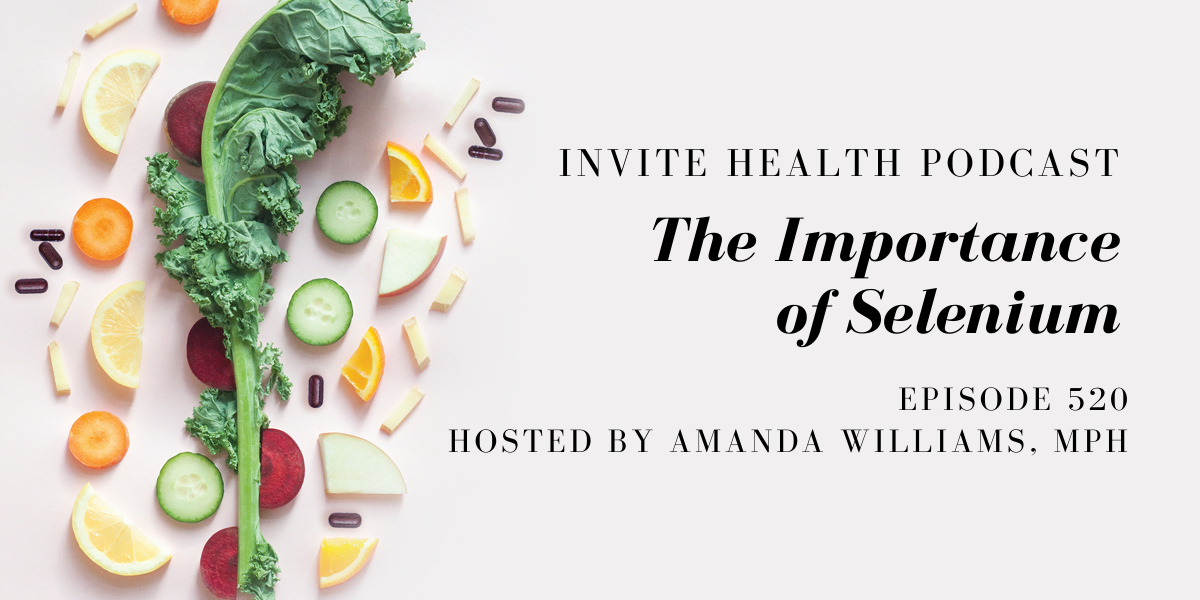selenium
Subscribe Today!
Please see below for a complete transcript of this episode.
The Importance of Selenium – InViteⓇ Health Podcast, Episode 520
Hosted by Amanda Williams, MPH
*Intro music*
InViteⓇ Health Podcast Intro: Welcome to the InViteⓇ Health Podcast, where our degreed healthcare professionals are excited to offer you the most important health and wellness information you need to make informed choices about your health. You can learn more about the products discussed in each of these episodes and all that InViteⓇ Health has to offer at www.invitehealth.com/podcast. First time customers can use promo code PODCAST at checkout for an additional 15% off your first purchase. Let’s get started!
*Intro music*
Amanda Williams, MPH:
[00:00:40] You’ve probably heard that vitamins and minerals are pretty important in our body. Today, I want to focus in on a particular micro mineral that’s incredibly important for our cellular health and has been linked to so many different cancers. So when we have low levels of this particular mineral, this can certainly be problematic. So I want to talk about the importance of it, the science behind it, how it’s working in the human body, all of its many different functions and what you can be doing to support your selenium levels. So I’m Amanda Williams, M.D., M.P.H., and let’s get right to it.† [00:01:16]
[00:01:16] Let’s talk about selenium. We certainly understand that selenium is a trace mineral, meaning that the body generally only needs a small amount. It’s found naturally in foods. The problem is is that there are pockets within the United States where the soil content of selenium is actually quite low. Now, does this drive up a true deficiency in many Americans? No, not necessarily and part of this is because of, you know, food traveling across the country from areas that are rich in selenium and making them, their way over to to places that are maybe lacking in that selenium content. But we certainly know that places such as Connecticut and Indiana, Illinois, Massachusetts, New York, Ohio, Oregon, Pennsylvania, Rhode Island are all states, and Delaware, I don’t want to forget Delaware, are all states where the soil itself is lacking adequate selenium. So we know that selenium supplementation is often incredibly advantageous, especially in those areas.† [00:02:21]
[00:02:21] As I mentioned, to have a true deficiency, yeah, that’s not always going to be the case, but the likelihood that you have an insufficiency or just low levels, which can certainly be problematic, is something that we certainly don’t want to, to overlook and seeing all of the different ways to which selenium is playing a role in our immune system and many other functions. And so I want to talk about this. So we know that it’s essential for our health, this little tiny, little micro mineral. It’s a trace mineral, as we call it, and we certainly can recognize it when it was discovered all the way back in the 1800s that it plays a really significant role in human health. So what is it actually doing? What’s its function in the body? Well, we can look at how it works inside of the cell to repair our DNA. So if you have damage done to that main motherboard within your cell, that’s a big problem. And so this is where that cancer connection comes in because we understand that cellular DNA damage is what drives cancer. So if we’re lacking selenium, we can now see that our cell is struggling to repair itself and fix that DNA. It’s kind of like if your computer crashes and you’re at a loss, you don’t know how to fix it. That’s a problem. So this is where the selenium comes into play. We know that it’s integrally involved in thyroid function. We can certainly look at its impact when it comes to cardiovascular health. There have been studies looking at low levels of selenium and the correlation with heart disease.† [00:04:04]
THE BASICS OF INVITE HEALTH’S GENETIC TESTING – INVITE HEALTH PODCAST, EPISODE 340. Listen Now>>
[00:04:04] Now, when it comes to our immune system, both the innate and the adaptive, that’s your immediate and delayed immune system response, we know that selenium is critical to this. So if we have inadequate selenium coming from our diet and we are not taking supplementation, then we’re kind of setting ourselves up for immune problems. We want to make sure our immune system is nice and strong so we can fend off any of the little bugs and creepy crawlies that come our way. Now we can also see how it’s important when it comes to our exposure to heavy metals. So when we think about things like lead and mercury and arsenic, we know that selenium is important when we think about the body’s ability to remove those heavy metals. We don’t want those heavy metals to find a home in our body and hang out. We know it works integrally with Vitamin E, which we know is one of our most important antioxidants in the body, but we can see how selenium partners up with Vitamin E to really heighten this level of antioxidant, free radical fighting capabilities that Vitamin E already has.† [00:05:21]

[00:05:22] So when you look at people who potentially have inadequate selenium in the body, we can look at problems such as just feeling weak and fatigued. Because remember, your cellular DNA can’t repair itself. We can look at folks who maybe have recurrent infections because it’s impacting your immune system. We can certainly look at it in reproductive health. We’ve seen that males who have low selenium levels will often have a low sperm count. We can see that it can impact our hair and actually create a situation where we’re losing pigmentation in our hair. It’s actually even been linked with vision health and cataracts, the development of cataracts. So this is an area that we definitely don’t want to overlook.† [00:06:09]
[00:06:10] Now you don’t need too much selenium. You know, too much of one thing isn’t always a good thing. We certainly see this to be the case when it comes to selenium. So we know it’s helping our DNA. We know it’s helping us eliminate toxins. We know it’s bolstering up our immune defenses. It’s helping to support our metabolism and our thyroid function. And certainly, we know that when it comes to heart health, when it comes to making sure our cells aren’t becoming problematic where we then develop cancer, this is why we need to not ignore the importance of selenium. And one of the things that science and the research has shown is the fact that selenium, this little tiny trace mineral, has all of these functions to, you know, keep the body safe from oxidative stress, to allow our thyroid to function every single day, to keep our immune system strong, to promote the health of our brain, our eyes, healthy cell division, promote the health of our heart. These are integral, and when we take selenium along with Vitamin E, this really allows our cellular health to be much stronger.† [00:07:32]
[00:07:33] So where do we get exposure to selenium when we look at different foods? Certainly, it’s a wide spectrum so we can look at certain seeds and nuts. We can look at certain fish like cod, for example, shrimp. But some people don’t eat fish. Some people don’t eat seafood. We can look at garlic. We can look at lentils as a source. We can certainly look at things like carrots and cabbage, almonds, pecans. I had mentioned the nuts. So we know that there are many ways to which we can incorporate selenium into our diet. The problem is, is that many people may not be getting a high enough exposure to those good, healthy foods. If you’re following a Standard American Diet, the likelihood that you may still be lacking in your selenium exposure each day is pretty high. And this can be problematic, especially if you’re in one of those states where we already know that the locally grown foods are going to be lacking selenium. So this is why we want to make sure, because for people who have insufficient levels, you know, maybe you have headaches, you know, chronic headaches, and you don’t know why that is. And maybe it’s because of just this insufficient intake of selenium. There’s many ways to which selenium insufficiencies can present itself. And then scientifically speaking, when you start to look at how important it is when it comes to that cellular division and the compounds contained within this micro mineral are so incredibly important in terms of that cellular division. And this is why they’ve been able to to look at epidemiological studies indicating that in areas where the population has low selenium levels, they are at a much greater risk for developing many different types of cancers. So in particular, they, they’ve zeroed in on things such as lung cancer, liver cancer, stomach cancer, bladder cancers. Now that’s not saying that there’s not the correlation between prostate cancer and breast cancer. Certainly there is, but we know that when it comes to promoting our longevity and helping to support our cellular health and that very important motherboard that DNA, we have to have selenium.† [00:10:02]
THE MANY HEALTH BENEFITS OF FLAXSEED POWDER – INVITE HEALTH PODCAST, EPISODE 141. Listen Now>>
[00:10:03] So getting that exposure can come in different ways. My advice is always use our Core Multivitamin. That’s an excellent way to get a good exposure to selenium. You’re getting the comprehensive Vitamin E. Remember those to partner up to help to support your health. But you can also use our Women’s Multivitamin, our Men’s Multi, our Performance Multivitamin. They’re all going to give you a good amount of selenium to make sure that your body can go through all of these different things that it needs selenium for each and every single day. For the immune system, for your heart, for your brain, for your eyeballs. And this is certainly important. It’s one of those minerals that we don’t talk about enough, but its impact in our body can be life changing. So do make sure that at a minimum, you are taking a comprehensive multivitamin, multimineral formulation, such as the InViteⓇ Core Multi.† [00:10:58]
[00:10:59] So that is all that I have for you for today. I want to thank you so much for tuning in to the InViteⓇ Health Podcast. Remember, you can find all of our episodes for free wherever you listen to podcasts or by visiting invitehealth.com/podcast. Do make sure that you subscribe and you leave us a review. You can follow us on Facebook, Twitter and Instagram. We will see you next time for another episode of the InViteⓇ Health Podcast.† [00:10:59]
*Exit music*


